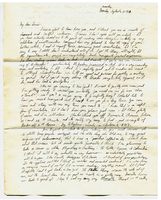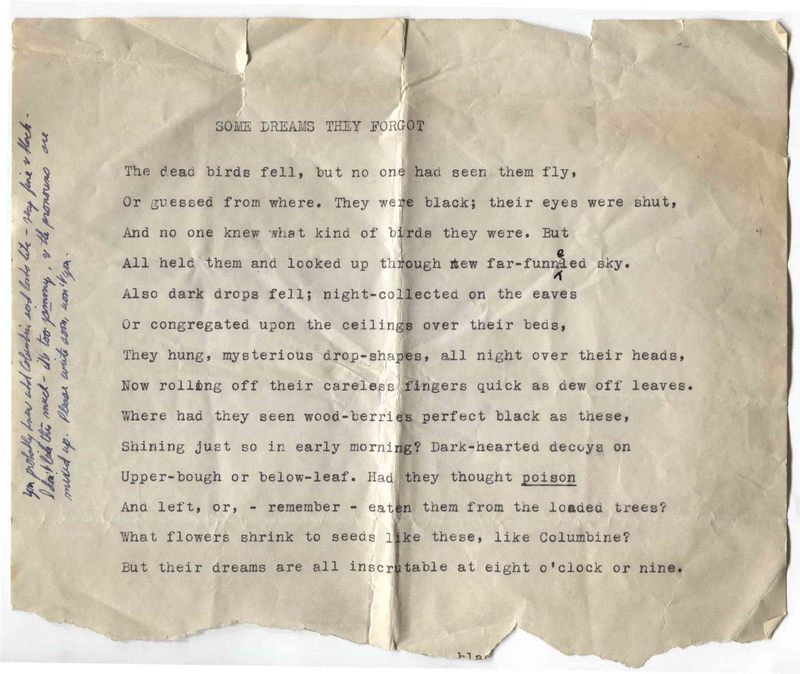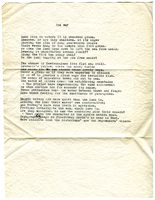The Development of a Poet
...I’m also puttering around as usual
with a dozen or so poems
none of which makes any sense,
but on which I am sure my life depends.
—Elizabeth Bishop Letter to Louise Bradley, 1934
Of all the events Elizabeth Bishop experienced while at school, one of the most important was her introduction to famous poet Marianne Moore, who would be instrumental in the development and eventual publication of her poetry. After graduating from Vassar, Bishop spent part of her life traveling, and she eventually settled for a while in Key West and later in Brazil. These rather dramatic changes of scenery provided Bishop with the opportunity and occasion to apply the poetic talent she had been practicing since Camp Chequesset and led to the most productive period of her career. It is unfortunate that, during this period of travel across the country and abroad, the frequency of her correspondence with Louise Bradley declined. Bishop laments this in one letter when, after nearly a year's silence, she writes: "There are lots & lots of reasons for why one doesn't write — some of them very good and other very feeble and bad. Please try to think that all my reasons were on the better side [...]." It is encouraging that, even after years of absence, the two exchanged the occasional letter and even met once in 1950, 26 years after their first meeting at camp.
It is difficult to measure the significance of Bradley's friendship on Bishop's body of work, except to say that her encouragement of Bishop's early interest in poetry must have been invaluable. Even as a published poet and established literary figure, Bishop sent copies of her work to Bradley for her to review. In one of her letters, she even refers to Bradley as "a master of discreet and tactful criticism." Over the course of the Bishop-Bradley correspondence, Bishop grows immeasurably from an inexperienced writer to a nationally recognized force in poetry and prose. In these letters, we are left with the evidence of an enduring friendship, and a sketch of a little-known part of Bishop's biography.





